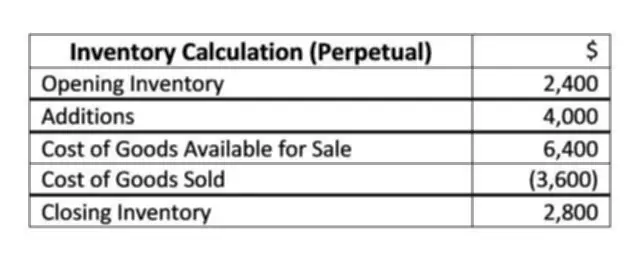
For example, if you use the word semiweekly, you can be referring to something that happens every Monday and every Thursday. If you are in the UK and trying to schedule a semiweekly video call with your partners in Canada and New York, that meeting will happen twice a week. One of the most popular ways to speak with more clarity when using this word is to switch the prefix bi with the prefix semi.
Popular in Grammar & Usage

If you are a borrower making biweekly payments to a lender, that means you are making payments approximately every fourteen days. This is a widespread pace for many different lenders and organizations when dealing with large numbers of consistent recurring payments. Biweekly is most commonly used to refer to the cadence of meetings or paychecks.
Alternative forms
However, just like the word biweekly, a common misconception is that bimonthly is used to describe something that happens twice a month. While it may be technically less correct than the word semimonthly, it’s still something to keep your eyes out for. In most cases, the word biweekly is used to describe things that happen every two weeks. For example, if you have a biweekly paycheck, that means you receive paychecks roughly every two weeks.
How To Distinguish Between the Different Meanings
It can be used this way as an adjective, as in a biweekly meeting, or an adverb, as in We plan to meet biweekly. If you have an annual salary of $1 million, your biweekly paycheck will be about $38,000. Bimonthly means “once in two months”….When used with periods of time, semi means “half of” or “occurring twice within a period of time.” Semimonthly means “twice a month”.
I thought there was a note that said, “avoid this word because it is confusing,” but that is not the case. Connect and share knowledge within a single location that is structured and easy to search. But we don’t mean “sorry” in the sense that we feel penitence; we are not to blame.
Words with Fascinating Histories
We’ll dive deeper into the meaning of biweekly, why it sometimes confuses people, provide synonyms to avoid uncertainty, and discuss other time-related words that use the bi- prefix. Biweekly can mean twice a week or once every two weeks, but most people use it to refer to the latter. There are times, however, when a biweekly meeting on your work schedule may occur twice a week. For maximum clarity, writing “every 2 weeks” or “twice a week” is advisable (regardless of correctness or incorrectness of “biweekly” in either sense). But what about when you’re at the mercy of English as it’s wielded by others? For example, the term bi-monthly is generally used to describe something that happens every two months.
In both cases, it’s commonly understood to mean twice monthly or once every other week, usually taking place on the same day of the week. This means that paychecks will be issued once every two weeks, usually on the same day. There are 52 weeks in a calendar year, meaning that people paid on a biweekly basis receive 26 paychecks per year. On the other hand, something that is bi-weekly would be something that happens on a specific day every other week, like every other Saturday. If you are taking biweekly classes or have a biweekly meeting, the odds are good that it is happening every other week.
- Take a (break/brake) and (pore/pour) over this (cache/cachet/cash) of questions about commonly confused words.
- However, just like the word biweekly, a common misconception is that bimonthly is used to describe something that happens twice a month.
- A biweekly meeting with your manager takes place once every two weeks unless otherwise specified.
- But newspapers that are called biweeklies are most commonly published twice a week—such as on every Monday and Thursday.
Anything that happens in that time period can be identified as biweekly. If you want to learn more about using the English language properly, feel free to check out The Word Counter blog! We’re constantly putting up new content that can help you to understand not only what words you’re saying but why you’re saying them and where they come from! Our goal is to provide people with an invaluable resource and wealth of knowledge for speaking in the most educated way possible in the world today. When it comes to identifying which definition of biweekly is being used, it’s essential to clarify what the person is saying instead of just assuming. The word biweekly can create a fair amount of confusion because of its confusing double meaning.
Every time a word with the prefix bi- in front of it comes up, make sure to look at the usage notes to understand and use the word in the most accurate and precise way. However, many things actually happen on a biweekly basis, whether we intend for them to or not. That’s why to word biweekly is so essential — it details a regular event that may not happen on the same periodic basis as many other kinds of events. Biweekly is commonly used to mean both “twice a week” and “every two weeks.” To avoid confusion, it’s a good idea to clarify exactly which one you mean. So while most people use it to mean once every two weeks, both definitions are grammatically correct. It’s important to provide context as to which definition you’re using when developing a meeting agenda or other documents for other people.
I never know if ‘biweekly’ is supposed to mean “twice a week” or “occurring once every two weeks”. Different prefixes can be added to weekly to indicate a different period of time, such as in triweekly (every three weeks or three times a week) and semiweekly (twice a week). These examples are programmatically compiled from various online sources to illustrate current usage of the word ‘biweekly.’ Any opinions expressed in the examples do not represent those of Merriam-Webster or its editors. Biannual is more straightforward, as it’s only used to mean twice a year.
Now a biweekly with a circulation of 50,000, the New Republic could use an infusion of cash. Biweekly may also be used as a noun to describe a newspaper or magazine that prints once every two weeks. The meaning of biannual, for example, could be either the first or the second. All content on this website, including dictionary, thesaurus, literature, geography, and other reference data is for informational purposes only. This information should not be considered complete, up to date, and is not intended to be used in place of a visit, consultation, or advice of a legal, medical, or any other professional. They worked it all up from the boiler-plate war news in the Biweekly and Lukes school geography.

We mean “sorry” in the sense that we feel a kind of sorrow aroused by circumstances beyond our control or power to repair. An Ben Watson asked could he have a copy to put in the Biweekly.
Although this is an acceptable synonym for biweekly, it’s not a common term for American English speakers. For, as anyone who pays attention to our work surely recognizes, we are at the mercy of the language. We diligently record the English lexicon in both its measured expansions and its wild proliferations, and any insistence by us that it favor the former over the latter is as whispers into a gale. Biweekly and bimonthly each have a pair of meanings that are unhelpfully at odds with one another. There are also many similar words to biweekly, like biennial for intervals happening every two years or bi-hourly for breaks happening every second hour.
He is also an online editor and writer based out of Los Angeles, CA. He studied at Georgetown University, worked at Google and became infatuated with English Grammar and for years has been diving into the language, demystifying the do’s and don’ts for all who share the same passion! Some things — like eating, sleeping, and doing work — are daily necessities for life. Some weekly chores might include getting gas for a car, posting on social media, or doing laundry. These regular events are a large part of what makes up our lives.

